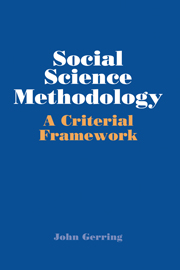Preface
Published online by Cambridge University Press: 05 June 2012
Summary
Those sciences, created almost in our own days, the object of which is man himself, the direct goal of which is the happiness of man, will enjoy a progress no less sure than that of the physical sciences, and this idea so sweet, that our descendants will surpass us in wisdom as in enlightenment, is no longer an illusion. In meditating on the nature of the moral sciences, one cannot help seeing that, as they are based like physical sciences on the observation of fact, they must follow the same method, acquire a language equally exact and precise, attaining the same degree of certainty.
–Condorcet (1782)In reading the work of older generations of social scientists one thing stands out as fundamentally different from today's writings. Through the mid-twentieth century, most writers who considered the subject were enthusiastic and self-confident about the promise of these fields. Two centuries ago, Condorcet prophesied that his descendants would surpass him in “wisdom as in enlightenment,” acquiring a language “exact and precise,” just as in the natural sciences. A century ago, Comte, Durkheim, Freud, Malinowski, Marshall, and Mark were equally confident – though with somewhat different notions of science in mind. During the postwar era, major intellectual movements like behavioralism, structural-functionalism, and modernization theory seemed once again to inaugurate new epochs of progress in the sciences of man.
Information
- Type
- Chapter
- Information
- Social Science MethodologyA Criterial Framework, pp. xi - xxPublisher: Cambridge University PressPrint publication year: 2001
